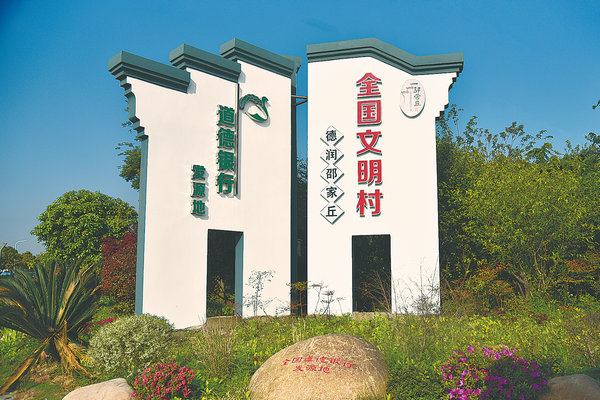

Revolving around two themes — "cultural resonance in a community with a shared future for mankind "and "Yangming philosophy and common prosperity" — researchers from different disciplines and backgrounds discussed the theories and practices of Wang's philosophy during the conference.
Li Guoqiang, associate dean of Chinese Academy of History, highlighted the application of Wang's thoughts to China's modernization.
He suggested thoughts, such as "innate knowing" and the "unity of knowing and acting", be connected to theories of Marxism, which will be developed into a strong workforce for the modernization drive.
Yang Guorong, president of China Philosophy History Association, stressed the similarities between Wang's thoughts and the idea of common prosperity.
"We can tell from Wang's principles that they intend to make people aware of their responsibilities to society, which reflects the idea of common development," said Yang. "Common prosperity means striving for all people. The idea behind it could be traced back to traditional Chinese culture, including Confucianism. We can also draw inspiration from thoughts, including the 'unity of knowing and acting' and 'innate knowing', to figure out ways to achieve common prosperity."

Zhu Hanmin, vice-chairman of the International Confucian Association, pointed out that China's commitment to building a community with a shared future for mankind to confront challenges, such as political, economic and military issues, is rooted in its traditional culture, especially Wang's belief that all things in the universe were originally one.
"His thought is practical and reveals a humanistic spirit similar to 'a community with a shared future for mankind'," said Zhu.
Chen Zhiping, president of the Chinese Society on Ming Dynasty History, also insisted that Wang's philosophy is still inspiring in modern times.
"Wang claimed that social governance is based on changing people's thoughts. We can take a page from it when building a community with a shared future for mankind."